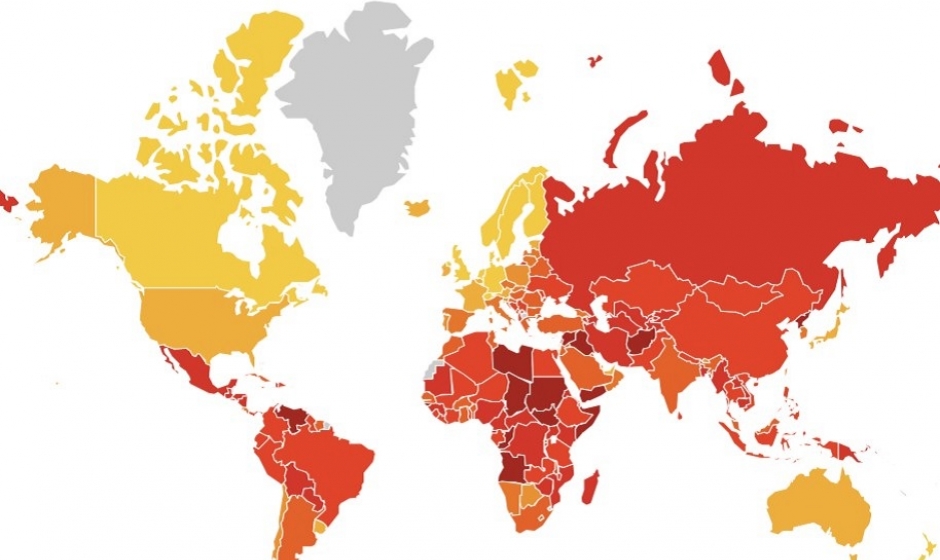Transparency International: Corruption Perception Index 2019
Since its inception in 1995, the Corruption Perceptions Index (hereinafter CPI), Transparency International’s flagship research product, has become the leading global indicator of public sector corruption. The index offers an annual snapshot of the relative degree of corruption by ranking countries and territories from all over the globe. The 2019 CPI draws on 13 surveys and expert assessments to measure public sector corruption in 180 countries and territories, giving each a score from zero (highly corrupt) to 100 (very clean).
The CPI 2019 reveals a staggering number of countries that show little to no improvement in tackling corruption. Furthermore, CPI analysis suggests that reducing big money in politics and promoting inclusive political decision-making are essential to curb corruption. Current state of corruption in many countries invites a need for greater political integrity. In order to efficiently suppress and combat corruption, governments must strengthen checks and balances, limit the influence of big money in politics and ensure broad input in political decision making.

Moreover, according to CPI, most of RAI member states have a higher corruption score than the previous year. Albania, Bosnia and Herzegovina, Croatia, Serbia, Montenegro, North Macedonia, Romania and Moldova had a higher, or same, corruption score than the previous year. However, according to the CPI analysis, Bulgaria improved its corruption score by one point.
To conclude, Transparency International recommends these actions to be taken in order to curb corruption: managing the conflict of interest, controlling political financing, strengthening electoral integrity, regulating lobbying activities, tackling preferential treatment, empowering citizens and reinforcing checks and balances.
The text was retrieved from Corruption Perception Index 2019 report.
DISCLAIMER: All views, opinions and accounts included in the RAI News Section are those of the authors; their inclusion does not imply official endorsement or acceptance by RAI. The News Section reflects the selection of topics of informative value to the organization and its stakeholders. Its content is taken from press/media sources and does not in any way reflect official RAI Secretariat policy. RAI Secretariat is not responsible for possible inaccuracies in media reports.
